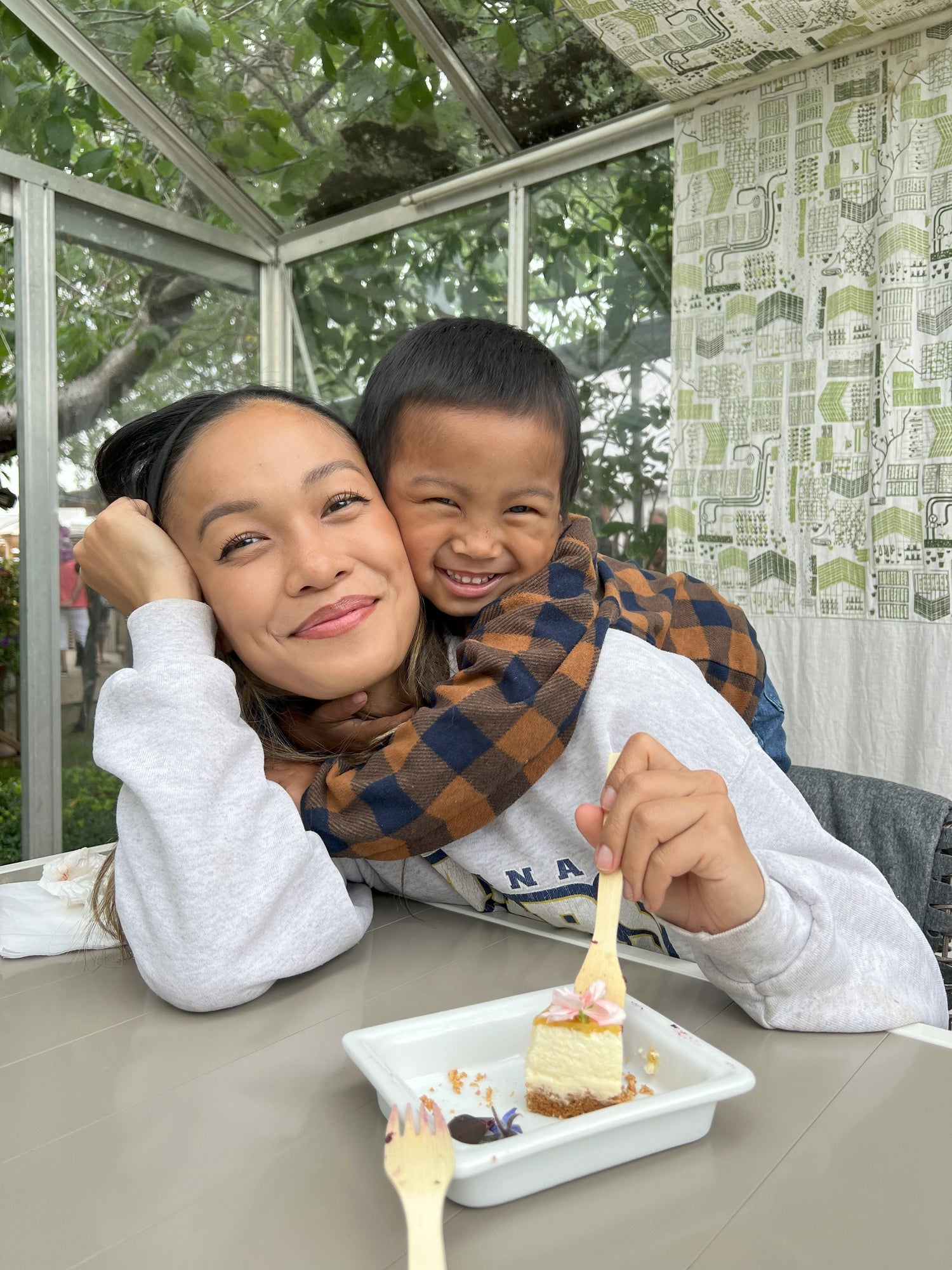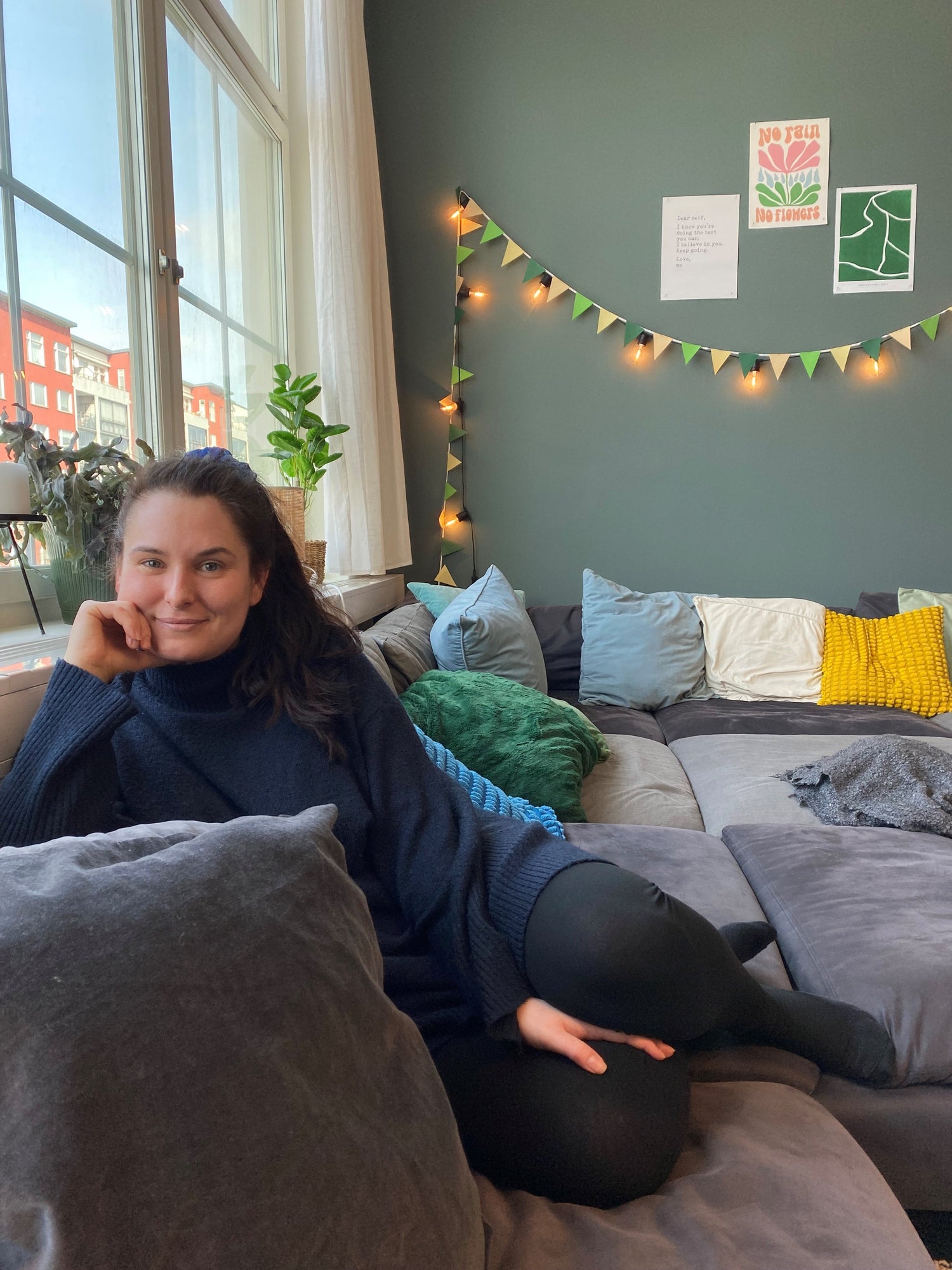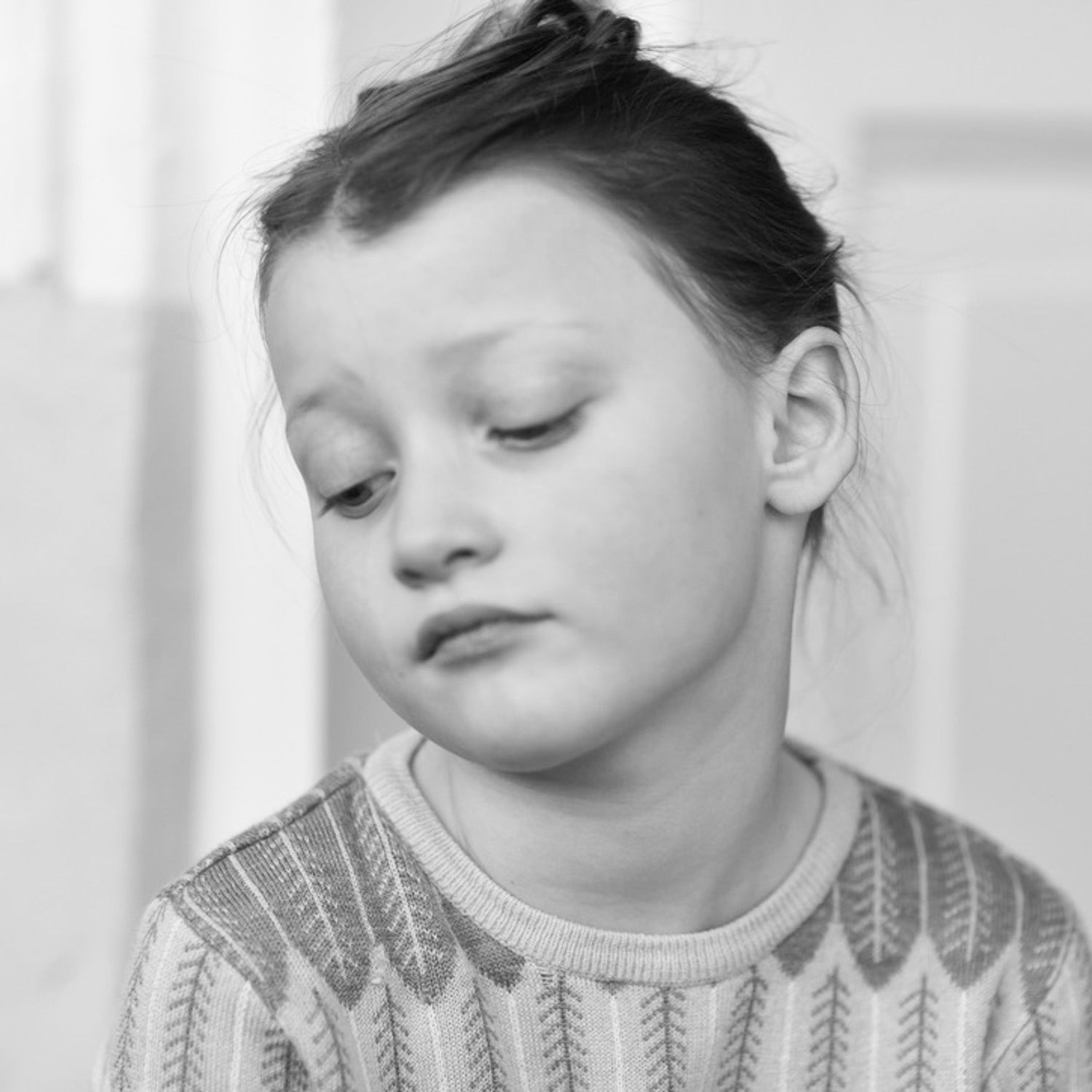Together with his family, he runs the channel the Swedish family. We have talked about feelings with a father who is the father of the entire Swedish people Axel-Swedish family.
Axel Berggren is the father in the Swedish family, i.e. the Swedish dad. Axel is the father of Alma 11 years old, Harry 8 years old and Laura 2 years old and lives with the Swedish mom, Joanna, outside Lisbon in Portugal. Axel is also an engineer, a boat fanatic and a person who has reflected a lot on emotions. This week we have just talked about talking feelings, children, Portugal, about being a father and also some personal development with him.

"As an adult, you can see that there are connections between the new situation and a previous one that we processed. As an adult, you can analyze yourself past the situation, but the children can't.... It can almost be like an irritation, but hey, we've already talked about this! ... There I often feel that I get stuck and wish that I could give the children what I know right away so that they understand and can handle the difficult things right now"
Hi Axel! Quick intro question, what is your favorite feeling? Which one and when does it appear?
Hello!
Hard question! It must still be joy. It appears when the children say something nice or cute or make a joke, or when the sun is shining or when you slept well, often in the small moments. But I feel that my definition has changed, the very requirements for happiness, have been lowered as the children grow up and the way we live our lives. Feeling more joy for the little things in life now.
You feel a meaning in life when you have children and that what you do is valuable. Then, of course, life automatically becomes more joyful.
Happiness before having children was quite demanding. It would be with the friends in a certain way, you would fit in and be someone you might not want to be. There was an uncertainty in it that made joy feel more difficult.
Tell us a little about who Axel is apart from the Swedish dad in the Swedish family!
I'm usually pretty bad at talking about myself. I think it has to do with the fact that I let others create an image of me and then I simply get to reflect those around me. I would say that I am a product of those who live around me. I'm a father, I'm 40, I have three kids and I don't think it's a lot of fun to work but still do it just like everyone else. I try to do things that I find exciting and fun and like to hang out with my kids as much as possible. In a few years, they won't think I'm cool anymore, so it's just as well to take care now.
Then I have a fondness for boats and training - two big interests. I live life simply.
How do you talk about emotions at home?
We talked a lot about feelings, and put them into words when the children were younger, but then when they started school and we were stressed with the company back home in Sweden, I think we lost it a little. Today, when we talk about feelings, it is often a situation that has arisen, a quarrel that needs to be dealt with. It is rare that we bring up the topic of emotions when we are in the positive emotional spectrum, precisely when it is fun and enjoyable. Two years ago we had child number three and since then we have gone back to talking about more elementary feelings with our youngest. Then it will automatically come back a little even with the big ones.
After all, feelings are a topic of conversation whose degree of difficulty varies depending on the children's age and level of maturity. It becomes more complex the more the children grow up. Our 11-year-old is going through a phase with a lot of emotions right now, and it can be difficult for her to handle, but also difficult for us adults to lead her through. We, like everyone else, probably need to get better at it.

"I think that as a generation we are very good at optimizing family life and trying to improve it and find solutions. Instead of just accepting what is.”
How?
As an adult, you can see that there are connections between the new situation and a previous one that we processed. As an adult, you can analyze yourself past the situation, but the children cannot. There you can drop the ball a bit like the adult companion, and not know how to get past it. It can almost come across as an annoyance, but hey, we've already talked about this! It becomes a bit routine-based. There I often feel that I get stuck and wish that I could give the children what I know right away so that they understand and can handle the difficult things right now. You know that in and of yourself from all your relationships, that you get stuck in a cycle of the same talk.
That's the way it is, that one's relationships tend to get a pattern - for better or for worse. Do you have examples?
I feel that as a parent you sometimes trigger your children, which is not the intention but a natural part of having a relationship. There, as an adult, you can try to change your own behavior, but it is not always so easy to build a strategy around how to handle your own emotions and guide the children.
Has your view of talking about emotions changed since you became a parent yourself?
Enormously! Much has come through the channel, where I have had to examine myself and my feelings. In the first few years, I found it quite difficult to stand in front of the camera with the Swedish family. But when I got over it myself and could be myself in front of half of Sweden's children, I matured in it and began to open up. But I'm the same as the rest of all the baby boys from our generation who aren't allowed to show emotions. We were supposed to play football and brush off the trouble, not cry. Then I realized as an adult that I myself went through a lot as a child. I regularly see a psychologist, which is a journey and a development in itself, and which of course makes it easier to deal with many emotional situations.
Before I was a parent, I mostly thought that emotions were something troublesome that I didn't have to worry about. Good feelings were fun, difficult feelings I either thought about and got anxiety or tried to screw up. I felt much worse and didn't have the same light in life when I was younger. As I learned to manage my emotions it has gotten 100% better. Of course, my life with the children helps a lot there.
"It's hard when your children are sad and you, as an adult, don't know how to guide them, so I think it's really important to let them be in those feelings too."
Do you feel that there is a difference in how you handle your children's emotions in relation to how your parents did?
Yes, a huge difference. I come from a family with three older sisters. My parents had children without talking about a strategy for how many children they wanted. Dad was pretty much done with children when I arrived. They separated quite early and argued a lot. When I talked to them later in life, I realized that they are very angry with each other even though they are approaching eighty. They never talked, they never talked out, and then it got infected. When we kids tried to confront dad, it's clear that he emotionally buried it. Old men at that age have never learned that you have to deal with the hard stuff too.
If I compare myself to my parents, there is a huge difference. Joanna and I talk all the time about our communication with each other and the children, how we see the world, etc. If we see someone else doing something good parenting-wise, we try to analyze it, try to pick up on it. I think we as a generation are very good at optimizing family life and trying to improve it and find solutions. Instead of just accepting what is.
As an adult, the rules of the game change, and I can help my parents reason about things. It almost becomes like an aha experience for them, "this is how you can do it". It feels good.
Moving to another country with the children must have been an emotional storm, which you also talked a little about in your Swedish family channel. What did it look like and how did you handle it?
It has been great for the relationship with Alma, even though she has missed her friends at home a lot. Harry hasn't had as big of an adjustment. It is probably easier to move abroad the smaller the children. I think that all parents of young children who can should try living in another country for a period. It's a chance in life that never comes back.
For the children, it will not be as free to socialize here in Portugal. Everyone lives so spread out and you are very dependent on your car. The children have the opportunity to be children to a much greater extent, but it requires a little more from the parents. We hear from many Swedes that their children grow up very quickly once they move home from here.

Finally, do you have something that works for you that you want to share with the Bonki parents?
Oh, how difficult! For us as a family, it is very much about trying to limit disturbing moments that divide the everyday family situation and trying to do other things that stimulate the children instead. It's almost better that they argue with each other instead of checking screens. Even though it is very difficult for children to fight, it is important that they are given the opportunity to vent their feelings so that they can learn from it. It's hard when your children are sad and you as an adult don't know how to guide them, so I think it's really important to let them be in those feelings too. If you suppress your feelings, it will only be bad. We try to let all emotions have a place and not be afraid that pain, rudeness and anger will destroy the family ties. If they don't fit when the children are small, they will unfold when they grow up.
We have a theory in the family that all people go through a pink period, meaning that everything should be pink and glittery. If you as a parent then step in and try to steer children away from it, you don't give them the mental space to wander around in the pink dreamscape when needed. If they don't do it then, it will come later in life. You can use it as a metaphor. Let everything take up space in life, if you don't, it will come later.
Now is the time!
Famous Last Words…
Never forget the child within you. Adults are just old children, with a lot of layers of life experience and self-imposed rules. Affirm the playfulness of life, and use your adult self to understand your child self's feelings.

Thanks Axel-Swedish Family for a great chat!
More of Axel and The Swedish Family can be found on Youtube:
https://www.youtube.com/@THESWEDISHFAMILY
And on Instagram:





